WHO Declares CoronaVirus a Global Pandemic Outbreak Emergency
On Wednesday the World Health Organization (WHO) has declared CoronaVirus a pandemic outbreak Emergency.
For several months since the first case was detected in Wuhan China, the WHO has been hesitant even after a constant plea from affected countries to declared coronavirus a Global Pandemic Outbreak Emergency.
Summary:
- The World Health Organization declared a global pandemic as the coronavirus rapidly spreads across the world.
- “We’re deeply concerned about the alarming levels of the coronavirus spread and its severity on the detected cases as well as its mortality rate,” the WHO’s chief said
- WHO officials had been reluctant to make such a declaration.
- It should be noted that the declaration of a pandemic is charged with major political and economic ramifications, global health experts say.
The World Health Organization declared coronavirus COVID-19 a global pandemic on Wednesday as the new coronavirus, which was unknown to world health officials just three months ago, has rapidly spread to more than 121,000 people from Asia, the Middle East, Europe, and the United States.
“In the past two weeks the number of cases outside China has increased thirteenfold and the number of affected countries has tripled,” WHO Director-General Dr. Tedros Adhanom Ghebreyesus said at a press conference at the organization’s headquarters in Geneva. “In the days and weeks ahead, we expect to see the number of cases, the number of deaths and the number of affected countries to climb even higher.”
Tedros stated numerous countries have verified the capability to suppress and manage the outbreak, however, he scolded different international leaders for failing to act speedy enough or appreciably sufficient to include the spread.
“We’re deeply concerned each with the aid of the alarming stages of spread and severity, and with the aid of the alarming levels of inactivity,” he stated, just before asserting the pandemic. “we have rung the alarm bell loud and clean.”
cases in China and South Korea have notably declined, he stated, adding that eighty-one countries don’t have any confirmed instances and fifty-seven nations have 10 or fewer instances.
“We can't say this loudly sufficient or genuinely enough or often sufficient: All countries can nonetheless change the path of this pandemic,” he stated. “a few countries are struggling with a loss of capacity. some nations are struggling with a lack of resources. some international locations are suffering from a lack of clear up.”
In a nutshell, all the countries need to take precautions for this coronavirus which has hit the world by storm. Some of the way to prevent the spread and contracting this virus include
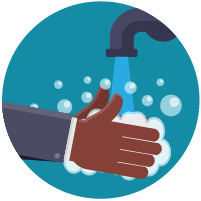
Clean your hands often
- Wash your hands often with soap and water for at least 20 seconds especially after you have been in a public place, or after blowing your nose, coughing, or sneezing.
- If soap and water are not readily available, use a hand sanitizer that contains at least 60% alcohol. Cover all surfaces of your hands and rub them together until they feel dry.
- Avoid touching your eyes, nose, and mouth with unwashed hands.
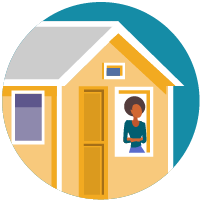
Avoid close contact
- Avoid close contact with people who are sick
- Put distance between yourself and other people if COVID-19 is spreading in your community. This is especially important for people who are at higher risk of getting very sick.
Take steps to protect others
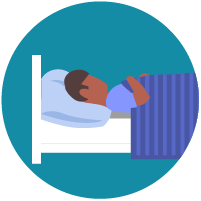
Stay home if you’re sick
- Stay home if you are sick, except to get medical care. Learn 10 steps to take if you are sick of coronavirus.
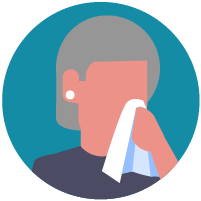
Cover coughs and sneezes
- Cover your mouth and nose with a tissue when you cough or sneeze or use the inside of your elbow.
- Throw used tissues in the trash.
- Immediately wash your hands with soap and water for at least 20 seconds. If soap and water are not readily available, clean your hands with a hand sanitizer that contains at least 60% alcohol.
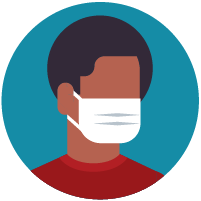
Wear a facemask if you are sick
- If you are sick: You should wear a facemask when you are around other people (e.g., sharing a room or vehicle) and before you enter a healthcare provider’s office. If you are not able to wear a facemask (for example, because it causes trouble breathing), then you should do your best to cover your coughs and sneezes, and people who are caring for you should wear a facemask if they enter your room. Learn what to do if you are sick.
- If you are NOT sick: You do not need to wear a facemask unless you are caring for someone who is sick (and they are not able to wear a facemask). Facemasks may be in short supply and they should be saved for caregivers.
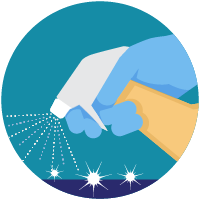
Clean and disinfect
- Clean AND disinfect frequently touched surfaces daily. This includes tables, doorknobs, light switches, countertops, handles, desks, phones, keyboards, toilets, faucets, and sinks.
- If surfaces are dirty, clean them: Use detergent or soap and water prior to disinfection.
Ready to take the next step in mastering your arousal and Cure your Premature Ejaculation? 👇
Get Your Copy of Mastering Your ArousalUnlock lasting control and confidence in your intimate life.
Related Posts
Trending Articles
Search Now
Recent Posts
- Understanding and Controlling Involuntary Kegels (Contractions) During Sex
- Why the Transition to Sex Can Be So Challenging After Premature Ejaculation Training?
- Why Setbacks Happen: The Truth About Orgasm During Your PE Recovery Journey
- I Prematurely Ejaculated in my Girlfriend while Trying to cure my premature ejaculation using the Guide
- Have you tried this technique once you get too close to PONR
Categories
- Premature Ejaculation
- Question & Answer
- Diseases
- Drugs
- Loans
- Insurance
- Health
- Hospital
- Lifestyle
- News
- Know How
- Education
- Travel
Comments (0)
Leave a Comment